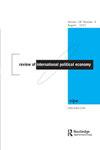全球价值和财富链纠缠在一起
IF 3.7
1区 经济学
Q1 ECONOMICS
引用次数: 6
摘要
近几十年来,跨国企业通过全球价值链(GVcs)重组生产和贸易,并通过全球财富链(GWcs)管理资产和负债。这种共同进化使得通过金融和法律技术对劳动力和自然资源的过度榨取成为可能,将价值创造和财富积累纠缠在一起。虽然学者们分别承认全球价值链和全球价值链在产生分配结果方面发挥的作用,但生产、贸易、金融和法律之间的纠缠现在如此广泛,以至于我们需要更敏锐的分析视角来理解它们之间的相互关系。为了追求这样一个镜头,我们提出了一个研究议程集中在链纠缠。我们认为,全球价值链和全球价值链并不是由公司作为独立的甚至是顺序的过程来管理的,而是价值创造和财富积累战略以值得仔细研究的方式组合在一起。我们开发了一个基于两个维度分析纠缠链的框架:1)无形资产与有形资产的相对重要性;2)企业战略的价值创造或财富积累活动取向。根据行业层面的例子,我们看到全球价值链-全球价值链纠缠的总体趋势是利用无形价值和资产进行财富积累的活动。我们还注意到劳工和公民行动主义如何突出现有监管和财政体系的失败,并干预相互纠缠的链条上的分配斗争。本文章由计算机程序翻译,如有差异,请以英文原文为准。
Entangled chains of global value and wealth
in recent decades multinational enterprises have developed ways to reorganize production and trade through Global Value chains (GVcs), and to manage assets and liabilities through Global Wealth chains (GWcs). this co-evolution has permitted the hyper-extraction of labor and natural resources through financial and legal technologies, entangling value creation and wealth accumulation. While scholars have separately acknowledged the role that GVcs and GWcs play in generating distributional outcomes, entanglements of production, trade, finance, and law are now so extensive that we need a sharper analytical lens to understand their inter-relations. in pursuit of such a lens, we propose a research agenda focused on chain entanglements. We argue that GVcs and GWcs are not governed by firms as separate or even sequenced processes, but rather that value creation and wealth accumulation strategies are imbricated in ways that merit careful study. We develop a framework for analyzing entangled chains based on two dimensions: 1) the relative importance of intangible versus tangible assets; and 2) the orientation of firm strategy towards value creation or wealth accumulation activities. Drawing on sector-level examples, we see a general trend in GVc-GWc entanglements towards activities that leverage intangible value and assets for wealth accumulation. We also note how labor and civic activism can highlight the failures of extant regulatory and fiscal systems and intervene on distributional struggles along entangled chains.
求助全文
通过发布文献求助,成功后即可免费获取论文全文。
去求助
来源期刊
CiteScore
9.20
自引率
9.30%
发文量
47
期刊介绍:
The Review of Political Economy is a peer-reviewed journal welcoming constructive and critical contributions in all areas of political economy, including the Austrian, Behavioral Economics, Feminist Economics, Institutionalist, Marxian, Post Keynesian, and Sraffian traditions. The Review publishes both theoretical and empirical research, and is also open to submissions in methodology, economic history and the history of economic thought that cast light on issues of contemporary relevance in political economy. Comments on articles published in the Review are encouraged.

 求助内容:
求助内容: 应助结果提醒方式:
应助结果提醒方式:


